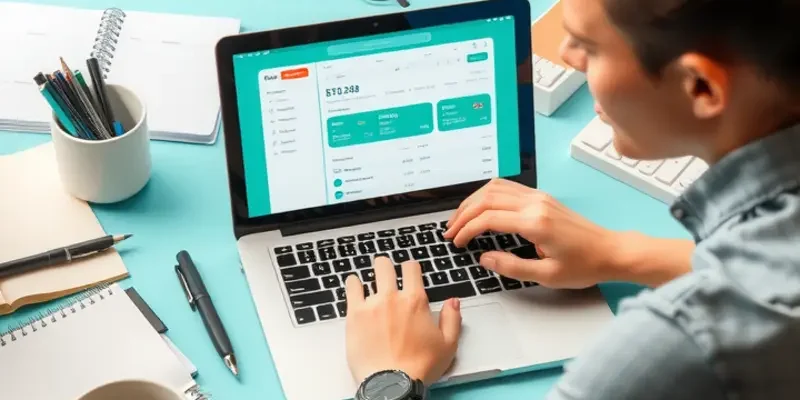Renting a home can be an exciting step, but it also comes with its unique set of challenges—especially when it comes to budgeting. Whether you’re a young professional starting your career, a student navigating your first apartment, a couple planning your next big move, or a family seeking more space, keeping track of your finances is essential. Renters budgeting apps are designed to relieve some of this pressure, offering tools that make financial planning easier and more accessible. These apps not only help you gauge how much you can afford but also track your spending, set savings goals for that dream apartment, and manage lease agreements—all in one place. In this guide, we’ll explore the benefits of using budgeting apps tailored to renters like you, and highlight some of the best options available for your specific situation.
Choosing the Right Budgeting App

For renters of all walks—be they students, young professionals, couples, or families—a budgeting app can be a lifeline. The right one ensures you’re managing your finances effectively without extra stress. Yet, how do you pinpoint the app that aligns with your rental journey? Here’s a guide to help you decide.
Begin by considering your lifestyle and financial situation. A student might need an app with robust expense tracking features, enabling easy monitoring of discretionary spending. Conversely, young professionals, often navigating variable income streams, require a tool that can handle budget fluctuations.
For couples or families, an app allowing multiple users can be invaluable. Managing a joint budget necessitates transparency, and simultaneous access keeps everyone on the same page. Look for apps that sync transactions automatically from different bank accounts. This feature reduces manual entry, mitigating errors while maintaining accuracy.
Cost is another vital factor. Many apps offer free versions, which work well for simple budgeting needs. However, these might lack advanced features. Consider if the cost of a paid version fits within your budget and if the features it offers justify the expense. Paid versions often include premium tools like customizable categories, detailed lease management, and multi-device access.
When looking at functionality, ease of use cannot be overstated. A complex interface may deter regular use, defeating the purpose of a budgeting tool. Opt for apps with intuitive designs—drag-and-drop functionality and clear, concise dashboards enhance user experience, making financial management less daunting.
Do not overlook lease management capabilities if you’re renting a property. Apps that integrate lease contracts and payment schedules can be indispensable. Such features help avoid late payments and penalties, giving landlords an earlier window into their next expected payout.
Expense tracking is a non-negotiable feature. An app that categorizes expenses and generates reports can highlight spending patterns. Use these insights to adjust your budget, potentially freeing up funds for savings or other goals. For more tips on handling rental billing and keeping finances tidy, consider exploring resolving rental billing errors.
Finally, consider data security—it’s crucial when dealing with financial information. Ensure that the app uses encryption to protect your data and offers two-factor authentication for additional security.
By thoroughly evaluating these factors, you’ll choose a budgeting app that not only suits your rent-centric lifestyle but also grows with you. With the correct tool, you not only keep your finances organized but also pave the way for a more confident rental journey.
Top Budgeting Apps for Renters

For renters, managing finances effectively means more than just paying rent on time. Utilizing budgeting apps can greatly simplify this process by offering tailored functionalities. Whether you’re a student on a tight budget, a couple sharing expenses, or a family managing household expenses, there’s an app that suits your needs.
Some budgeting apps cater specifically to students. Their features often include the ability to track multiple income sources like part-time jobs or financial aid. They also offer educational content that helps in building foundational financial skills. Many are available for free but may offer premium subscriptions for additional features such as customized financial advice or data export capabilities. The primary advantage is the focus on simplicity and ease of use, but the cons may include limited features for those with more complex financial needs.
For couples, apps that offer shared budgeting tools can be incredibly useful. These apps allow for income and expenses to be tracked collectively, ensuring transparency and collaboration. They often come with a feature that categorizes spending, making it easier to identify areas for cost-saving. Some even offer real-time syncing between devices which is perfect for couples who manage finances together. While the seamless collaboration is a significant benefit, some users might find the initial setup process a bit cumbersome.
Families, on the other hand, would benefit more from apps with robust reporting and planning features. Such apps allow for tracking of household expenses and even child-related expenditures in detail. They often include functionality for setting long-term financial goals, such as saving for a down payment on a house. Their comprehensive dashboards provide insight into monthly trends and future forecasts. However, these apps might come with a steeper learning curve and subscription fees.
For all these apps, security remains paramount. Most apps use bank-level encryption, ensuring your financial data remains protected. Many provide additional security features like two-factor authentication to protect against unauthorized access.
Choosing the right budgeting app also means understanding any hidden costs. Free apps may often contain ads or offer in-app purchases, while paid options might offer a trial period to test their features without committing to a subscription.
To further enhance your financial management skills, you might consider exploring resources on financial planning for renters. Such guides can complement the functionality of budgeting apps, providing a holistic view of financial health.
In selecting the right app, assess your financial goals, evaluate the app’s features, and consider the costs involved to make an informed decision that empowers your financial journey.
Final words
Navigating the world of renting doesn’t have to be overwhelming. By utilizing the right budgeting app, you can take control of your finances and ensure you’re making informed decisions about your living situation. Whether you’re a student moving into your first apartment or a family looking for a larger space, these apps provide valuable insights and easy management tools to keep your expenses in check. Consider your unique needs, explore the options available, and choose the app that aligns with your financial goals. With the right resources, you can embrace renting with confidence!









